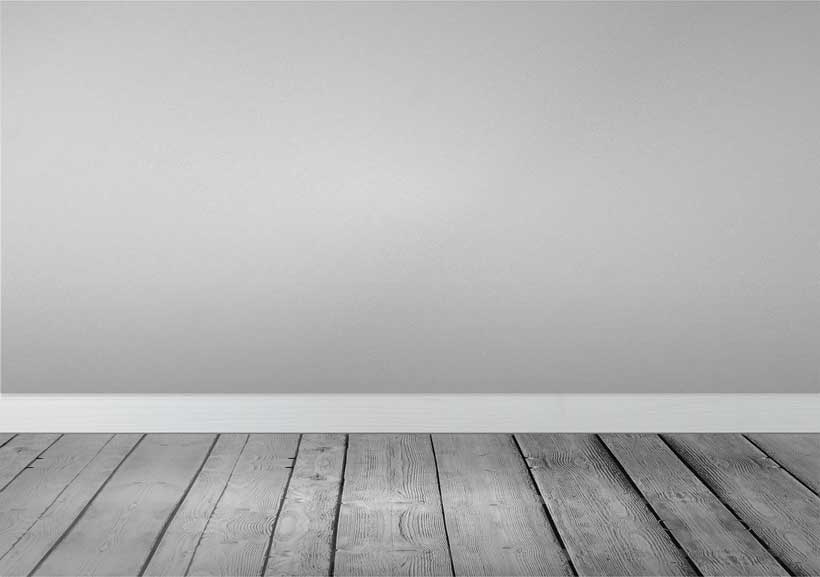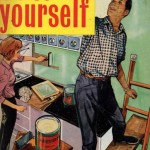I may get commissions for purchases made through links in this post.

Minimalism is often portrayed as a viable alternative lifestyle to consumerism. It’s supposed to ensure a more fulfilling and less wasteful life.
For the sake of clarity, what exactly is minimalism?
Honoring the concept of the ‘minimalist philosophy’, here’s the short, yet adequate version:
Minimalism is about getting rid of excess stuff and keeping only what you need. Results that ensue are less stress, more time, and increased happiness.
That’s pretty much it.
On many minimalist websites however, self proclaimed gurus are advertising their new found philosophy with much ado.
A lot of fluff is created around the simple notion that less is more. I mean, seriously, how many times does it need to be said and rephrased in even more poetic forms that owning less stuff makes you happy?
What happened with walking the talk?
Which makes people wonder,
Minimalist living, isn’t that some extreme, hipster-ish, highly trendy lifestyle?
Yes. It is.
It’s even worse. Here’s the problem with promoting minimalism as the alternative to our wasteful Western lifestyles.
Minimalists are tainting the ideal of downsizing with the self-glorification of minimalism as an ideology. Promoting the noble pursuit of downsizing as a puritanical cult, the concept teeters on becoming a vulgarity. Thus rendering the whole idea a contradictio in terminis.
There are some other things that irk people about minimalism as a lifestyle.
Note: I’m not trying to make other bloggers look bad. I embrace minimalism and wish more people would adopt any form of living that steps away from excessive strain on our planet. I’m deliberatly taking the Devil’s Advocate stance here to stoke the fire.
Minimalists can appear self-righteous.
Self-styled minimalists wonder how to make their idea “become accessible and intriguing instead of scary and intimidating”. Arguing about the difference between simplicity and minimalism and if the one or the other term is better geared for their purpose.
I have news for you, it’s not scary or intimidating, it’s offputting.
Often the question rises, is this ideology solely there for you to serve your ego, “I’m special because I’m doing this”?
Minimalist bloggers even talk about how to keep the minimalist movement attractive to the masses.
I can tell you right now, you won’t.
Here’s why.
Minimalism is inherently extreme
Many minimalism promotors are nowadays conveying the message that minimalism is not about sleeping on the floor and other Spartan practices.
However, the bad connotation sticks. The lingering bad taste in my mouth probably has to do with the label itself, ‘minimalism’. Nomen est omen. The name says it all. The ideology often dismissed as a fad probably IS a fad since its name refers to an extremity. Minimalism is radicalism no matter how you color it in.
Merriam Webster on minimalism; a style or technique (as in music, literature, or design) that is characterized by extreme spareness and simplicity
Finding the mean between two extremes, excess and minimizing to the max does not seem to apply here.
Which is why..
Minimalism deals with more than a serious image problem only
Here’s what one minimalist blogger said about the perception of minimalism as a lifestyle.
There are few if any downsides to minimalism, but sometimes it’s difficult to explain it to people who have closed minds. Sometimes people just don’t want to understand minimalism, they see what we’re doing and they just want to argue or dismiss it as a fad. Most of those people are very attached to their things, and they are afraid to stop consuming because they associate a certain meaningfulness with their consumption, they are too attached to an ideology that their stuff brings them happiness. Thankfully, over time, minimalism reveals all of its advantages on its own. So if you’re patient with those people, their minds will open, and they will understand eventually. Ryan from The Minimalists
The hesitance towards minimalism isn’t only due to narrow-mindedness. Maybe there’s something else at play here.
Not only due to its intrinsic meaning but also because how minimalism is often presented it comes of as an extremity. A radical lifestyle embraced by eccentric nutters. An alienating, sanctimonious cult. No wonder people are hesitant or even repelled by it.
I think people do understand it. The thing is, if you wouldn’t make a caricature out of the concept it would be more approachable and as a result perhaps more people would be interested in embracing it. Or at least parts of it.
Minimalism makes a caricature of itself
Just as consumerists are in a race of who owns the most (expensive) stuff, it seems many minimalists are competing over who owns the least things. Or in portraying an even more barren depiction of their minimalist life than the other.
Instead of a healthy, well-balanced alteration of the slipped consumption society it seems more like an obsession that turned into a freakshow (the Absolutely Fabulous episode on minimalism comes to mind).
Don’t get me wrong, I’m all for decluttering, downsizing and minimizing our outrageous Western lifestyle. It’s just that promoting the benefits of the concept to the rest of our Western society in a balanced way would be a much nobler thing to do then deepening it into another definite subculture that feels less accessible to other people.
Minimalism as a lifestyle is a cult
If you are like me you may like to dabble into “minimalism”. Be aware and sensible about your consumerist behavior.
I, however, am no minimalist, just as I’m not my job, or my music taste, or my Khakis. I don’t feel the need to “become a minimalist”. Let alone “a true minimalist” as I hear some people say. What is that anyway?
The tendency of people wallowing in a social subculture, whether it is being hipster, frat boy or a minimalist makes me cringe. I get it though, being a sheep is what makes us feel safe. Being part of a social sub-group, you can conveniently feel different without actually being different.
To capitalize on these needs lifestyles have become products and you could say minimalism is lifestyle porn. Or a religion. As most other cultural programs, minimalism fetishizes ideas and concepts and lies out rules or guidelines. Gurus preaching the Holy Minimalism Commandments tell you which path to follow on how to live well (there’s even a $149 course in minimalist living).
If there is anything the nonconformist hates worse than a conformist, it’s another nonconformist who doesn’t conform to the prevailing standard of nonconformity. – Bill Vaughan
Be warned that adopting any pre-fabricated, dogmatic lifestyle, whether it’s the suburbial McMansion lifestyle or the minimalist lifestyle with its rules and social conditions reduces your freedom. Passively obeying the sermons of lifestyle preachers you are just as manipulated as corporate puppets and consumerist servants.
In that sense minimalism is no different. It’s just another countercultural lifestyle providing its followers with a certain social status. Seemingly outside the status quo but still securely in its own delimited niche.
Minimalism is still about stuff
Either acquiring it or focusing on doing without it. Obsessive product counting or fetishizing the few products you do own.
With less material possessions the focus becomes on the empty spaces themselves. ”the ones with almost nothing in them except some beautiful furniture, some nice artwork, and a very few pretty decorations, are the ones that appeal to most of us”.
Minimalism would be better as a tool instead of a definite lifestyle
More balanced supporters prefer to view minimalism, or more specific ‘less is more’ as a lifestyle instrument instead of a lifestyle.
Here’s an analogy.
When you want to lose weight the best way to do so is not by almost starving yourself. The most efficient and long term sustainable way is to make lifestyle changes you can keep up with, eat better, eat less, excerise somewhat more. This crux here, you keep it fun and it’s doable.
You don’t have to “own only one pair of jeans” I myself have three pairs because I love jeans but at the same time I do like to own as less stuff as possible. To a certain degree that is. It makes me feel good to be able to get around with only the bare necessity of possessions. Or probably just a little bit more.
I admit, it’s liberating too. Less stuff that can break, I can lose, or can out date so I have to buy the upgraded version. More appreciative of the things I do own.
Studies show that non-capitalist peoples and tribes are luckier than we in our so called first world, full of products and advertisements. It’s like Buddha said, the root of suffering is attachment.
Wrapping it up
To clarify, I don’t think there’s anything wrong with radical lifestyles. To each his own. It’s just that the promotion of minimalism as the solution to consumerism is a crappy one.
And if you would want to deny the radical aspect, why not call it modestism, golden mean’ism, or something more eloquent or just stick with downsizing?
Or just admit its a badge of honor. The same warm trendy sheepfur coat friends and likeminded folks wear. Because as long is it’s called minimalism it’s unlikely to shake off its bad image.
Until that time…
….modesty is a virtue folks. You might expect this to apply especially to the implementation of minimalism as a lifestyle.
Maybe somewhat less elitist, more humble. Perhaps even a little bit more stuff and somewhat less self righteous moralism.
But of course, only just a little bit.
Image: Pixabay.




















One of the great things about minimalism is, its only a label with multiple definitions, choose the version that works to one’s own life and ignore others attempting to control what the ‘right’ definition of it is. Someone with 5 tons of material items in their house could be defined as a minimalist by lavish lifestyle folks living in a 50 ton McMansion, versus homeless on the hill with nearly nothing but a backpack and perfectly happy with it. Minimalism to me is what was mentioned in the first part of the article above – getting rid of excess stuff and just keeping what one needs, but some challenges are defining realistic needs versus…wants.
True it’s just a label. It’s refers to what I have been doing the most part of my life too. I often eat meals with only 4 or 5 ingredients, I run barefoot, don’t buy things I don’t need, almost never buy clothes, don’t watch TV (too commercial, as well as excessive and empty at the same time), don’t own a luxurious/expensive car and so on. My point is that, paradoxically, certain minimalist advocates are advertising their way of life in an excessive manner.
Similar ways I’ve also gone back to basics on, scaled down clothing, TV time (agree with the excessive commerciality, unfortunate increase that audiences have in violent dramas, etc) Also using internet less these days. Cool to see more forums coming up with more folks going back to more peaceful ways.
photos would have been helpful
This article pretty much sums up every problem I’ve ever had with minimalism. I know some obsessive minimalists, and their personalities can be minimally described as elitist and neurotic. I know I have way too much stuff in my house, and that I need to get rid of some of it. But I also don’t want to live in a mausoleum, which is what most of the minimalist houses you see in trendy photo spreads look like.
Your Bill Vaughan quote reminded me of a comment by my favorite philosopher:
“Nonconformists travel as a rule in bunches. You rarely find a nonconformist who goes it alone. And woe to him inside a nonconformist clique who does not conform with nonconformity.”
― Eric Hoffer
While writing the article I considered adding that Hoffer quote. During my my time as a full time RV dweller I was often astounded how, even among the self-proclaimed alternative lifestyle proponents such as van-dwelling surfers and hippies in trucks, there is hardly any true individual non-conformity to find. Yes, as a group they have stepped back from mainstream society but they still pretty much all conform to their subculture. They wear the same clothes and have similar hairstyles, have the same type of dogs, go to the same festivals, listen to the same music, opt for the same leisure activities, have pretty much the same opinions, and so on.
Thanks.